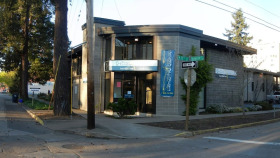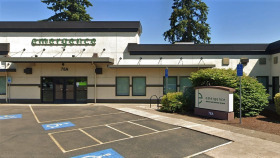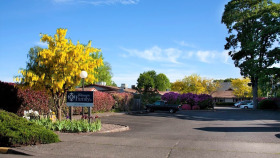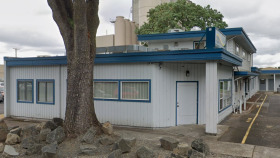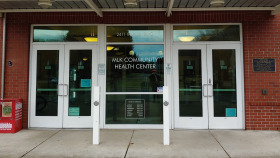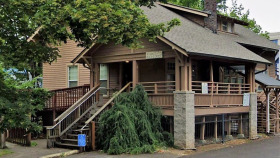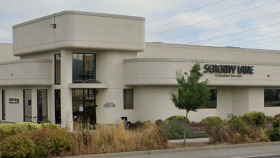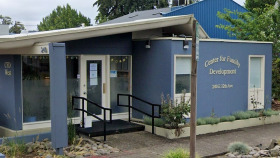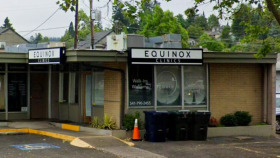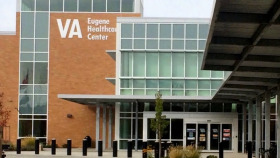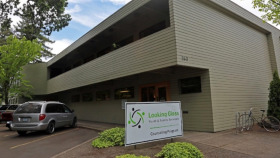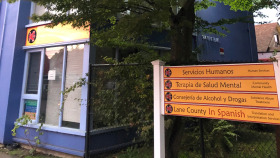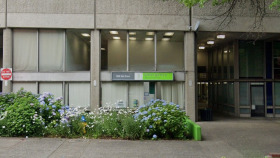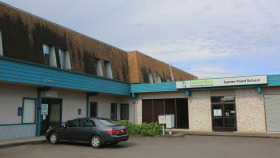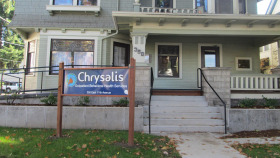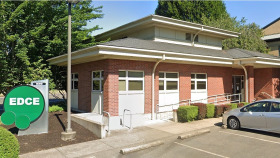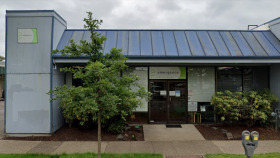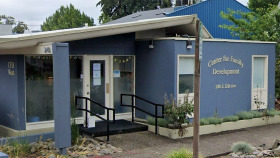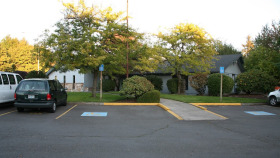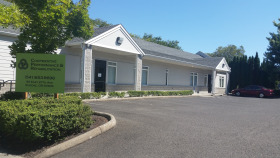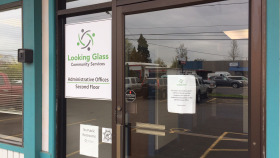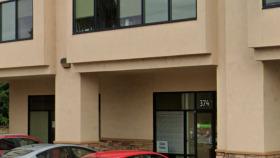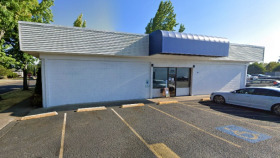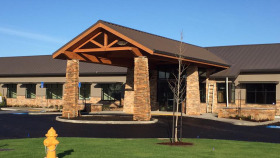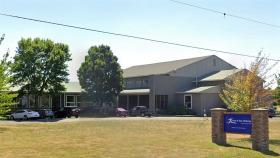Expert Insights
I recently read in the news that 61,000 people in Lane County — which includes Eugene — have substance use disorder but can’t get treatment. As a peer mentor who has recovered it breaks my heart that we can’t do more to help people into recovery. Measure 110 has provided millions in funding and we’ve seen low-barrier recovery support, like peer mentors, really help but we don’t have enough. The other problem is that the funding could be cut at any moment as nearly a dozen bills have been proposed that could change our finding. I think that state officials should not be making decisions about people when they have no lived experience of addiction. As peers, we know that without a peer support system, detox and treatment may not be successful long-term. So it’s short-sighted, in my opinion, to cut funding to the very people that keep folks in recovery!
~ Olivia Pennelle
Cost of Drug Rehab in Eugene
The cost at rehabs and detox centers in Eugene differs from patient to patient and from facility to facility. Whether you have health insurance and what it covers will likely play a major role in determining your out-of-pocket costs.
The level of care you require will also impact your costs. Inpatient is usually much more expensive than outpatient since it includes room and board, meals, and around-the-clock supervision and care. The length of your program—and whether you transition into a step-down program—will also affect your treatment costs. Other factors that influence expenses include facility type and whether you need medications for addiction.
Many Eugene drug rehabs accept multiple forms of payment and several offer assistance to those who qualify. According to the Substance Abuse and Mental Health Administration, 18 facilities are located within a 10-mile radius of Eugene. Of those facilities:4
Low-Cost and Free Drug Rehab Centers in Eugene
If you’re ready to jumpstart your recovery but don’t have the means to pay for some or all of your costs, you can still get help. Several resources exist to aid you in accessing care at little to no cost.
State-Funded
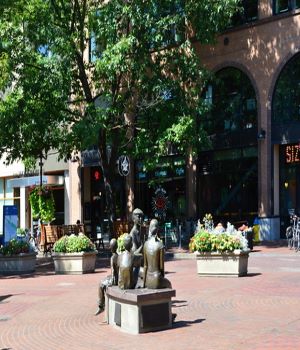 These facilities receive subsidies from the state and federal governments, allowing them to provide low-cost and free treatment for qualifying individuals. As a result, they provide the same evidence-based treatment as privately funded facilities but may not offer alternative therapies or extra amenities due to funding limitations.
These facilities receive subsidies from the state and federal governments, allowing them to provide low-cost and free treatment for qualifying individuals. As a result, they provide the same evidence-based treatment as privately funded facilities but may not offer alternative therapies or extra amenities due to funding limitations.
If you’re interested in qualifying for reduced-cost or free care at one of these facilities, you must apply and be able to demonstrate proof of financial need. You’ll likely also need to show proof of residency and lack of insurance. If you need help finding state-funded facilities in or near Eugene, you can contact the Oregon Health Authority for more information.5
Sliding-Scale Programs
Several Eugene alcohol rehabs recognize that many people needing treatment have a limited ability to pay. To make care more accessible to all, they offer services on a sliding fee scale.
This variable fee structure assesses your income to determine how much you can reasonably afford to pay for services. While each facility’s scale may vary, most establish payment increments based on the U.S. Federal Poverty Guidelines. If your household income is at or below the Federal Poverty Level, treatment may be free. If your income is above that level, you’ll likely pay a predetermined percentage of the program’s full fee.6
Scholarships
Scholarships can cover some or all of your costs, depending on the award. Some addiction treatment centers offer these scholarships in-house, while others partner with donor agencies that fund the cost of care for qualifying individuals.
All scholarships require an application and are awarded on a case-by-case basis. To get one, you must be able to show proof of financial need and will likely need to complete an interview with the donor organization.
Insurance-Covered Treatment
Both private health insurance and publicly funded plans like Medicaid and Medicare can help you pay for drug or alcohol rehab in Eugene. But the amount your insurance will pay depends on your provider and your plan’s extent of coverage for addiction treatment. Some plans cover care in full while others cover only a percentage of total costs.
If you plan to use your health insurance to pay for some or all of your expenses, understand that your plan may have a provider network. If it does, you must choose a facility within that network to get coverage for your care.
Eugene, OR, Drug and Alcohol Statistics
Eugene is the county seat and most populous city in Lane County, Oregon. Like many areas throughout the state, the city has seen sharp increases in opioid use and overdoses in recent years. According to data from the Oregon Health Authority, the state’s SAMHSA-designated substance use authority, Lane County recorded nearly 930 EMS calls involving opioid overdoses in 2019 alone.1 Other recent alcohol and drug use statistics of note include:1, 2, 3
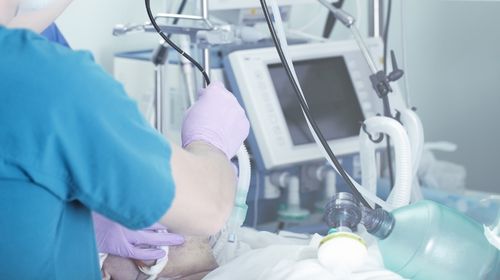
Lane County recorded higher rates of drug-related hospitalizations than the state. In 2018, nearly 560 people were hospitalized for drug-related overdoses.

In 2019, Lane County recorded the second-highest number of overdose fatalities of all counties in the state. That year, 117 residents lost their lives to a drug overdose.
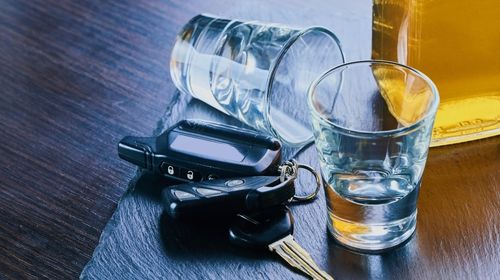
From 2014 to 2017, nearly 21% of Lane County adults reported engaging in binge drinking, and 14.5% of 11th graders reported using alcohol in the last 30 days.

As of 2017, Lane County had a higher alcohol-induced mortality rate than Oregon as a whole. Males had a higher rate than females at 36.3 and 9.6 per 100,000.
Alcohol and Drug Laws in Eugene, OR
Oregon Good Samaritan Law: Under this law, anyone who calls 911 in the event of an overdose cannot be arrested or prosecuted for drug-related charges.7 This law also protects the overdose victim from arrest or prosecution for the same drug-related crimes.
Oregon Naloxone Standing Order: This order allows anyone at risk of an opioid overdose to get naloxone from a licensed pharmacy without a prescription. It also allows anyone who may be able to administer naloxone to someone experiencing an overdose to get the medication without a prescription.8
Oregon Family Leave Act (OFLA): In Oregon, anyone working for an employer with 25 or more employees can qualify for up to 12 weeks of protected leave if they need to enroll in addiction treatment. However, eligibility depends on whether the individual has worked for their employer for an average of 25 hours per week for at least 180 days.9
Addiction Treatment Settings
Inpatient
Inpatient rehab programs take place in a highly supervised, structured residential setting and involve several evidence-based addiction therapies. They aim to stabilize patients and provide a secure, immersive environment where patients can focus intensely on recovery. They may offer a medical detox if your addiction is severe enough. This process will help keep you safe and comfortable during withdrawal.
Outpatient
Outpatient rehab programs allow patients to live at home while they attend weekly treatment sessions on a set schedule. Partial hospitalization programs (PHPs) and intensive outpatient programs (IOPs) provide comprehensive treatment and involve several hours of therapy per week. Standard outpatient programs typically provide low-intensity counseling and can function as a form of aftercare.
Specialized Drug Rehabs in Eugene
Eugene is home to several alcohol and drug rehab centers, many of which offer different types of treatment programs to suit a wide variety of unique needs. One or more of the following programs may be a good fit for you based on your substance use history, mental health status, and other variables.
Demographic-Specific
Many facilities offer demographic-specific rehab programs for veterans, LGBTQ+ persons, men, women, and teens. These programs aim to provide an inclusive, safe space where people of similar backgrounds can feel understood, safe, and supported as they work through recovery.
Faith-Based
Faith-based programs integrate evidence-based therapies and spiritual and/or religious practices like prayer, worship, and scripture reading into their recovery model. They’re designed to help patients grow spiritually, find healing through their faith, and strengthen their resolve to recover.
Holistic
Holistic programs integrate alternative therapies like yoga, meditation, and animal therapy with evidence-based addiction therapies to provide a holistic treatment approach. They aim to support whole-person healing and help patients improve their physical, mental, and spiritual well-being.
Dual Diagnosis
Dual-diagnosis programs are designed for individuals with co-occurring substance use and mental health disorders. They provide concurrent, evidence-based treatment for both conditions to help ensure one condition does not exacerbate the other when patients transition back to community life.
Luxury
Luxury programs offer luxury amenities in an exclusive setting that’s not unlike an all-inclusive, high-end resort. They aim to provide a remarkably comfortable environment where patients can feel as at home as possible as they undergo treatment.
Executive
Executive programs cater to the needs of high-level professionals who need privacy and special resources to continue working as they receive treatment. Typically, executive programs give patients access to computers, conference rooms, the Internet, and other amenities that other programs don’t offer.
How to Choose the Right Eugene Drug Rehab
As you compare various Eugene alcohol rehabs, think about your needs and the features you’d like your facility to have. Factors to consider as you research your options include:
- Program cost and payment options: Does the facility accept your insurance? Does it offer any type of financial assistance for patients who don’t have insurance or those with insufficient coverage?
- Type of treatment: Does the facility offer inpatient or outpatient? Does it offer step-down programs or aftercare? What type of treatment do you need?
- Treatment approach: Each rehab has its own philosophy. Some use a holistic approach that incorporates alternative therapies like meditation, while others use a faith-based approach that incorporates spiritual practices into treatment.
- Amenities and features: Do you want access to recreational facilities? What about spa services? Do you want private accommodations or gourmet meals? What features are important to you?
- Location: Would you prefer a more urban setting or an environment that’s more peaceful and secluded?
- Program rules: What are the facility’s policies on visitors, smoking, and cell phone use? What other rules does the treatment center have?
Should You Travel for Drug and Alcohol Rehab in Eugene?
 Eugene is one of Oregon’s most popular destinations for outdoor enthusiasts, so if you love nature and believe it can help with your recovery, the area may be ideal for you.
Eugene is one of Oregon’s most popular destinations for outdoor enthusiasts, so if you love nature and believe it can help with your recovery, the area may be ideal for you.
Other reasons to consider traveling to an alcohol or drug rehab in Eugene include:
- You live in an area that doesn’t offer the type of care you need.
- Your insurance covers treatment at one or more Eugene drug rehabs.
- You need a respite from your day-to-day environment, which may contain triggers and stressors that could interfere with your recovery.
- You want to work through recovery in a new place where you’ll have privacy.
- You have loved ones in the area who can provide support.
If you enjoy art, downtown Eugene boasts a vibrant visual arts scene and is home to several art galleries, unique eateries, and performing centers. Across the river from downtown is the Oakway neighborhood, where you’ll find a golf course, plenty of green spaces, public art installations, and several walking and biking paths.
Eugene’s Market District is another fun, must-see area that’s packed with local shops, artsy architecture, art activations, and live musical entertainment. The city’s Whiteaker neighborhood is also a must-see with its massive murals, farm-to-table eateries, and dozens of alternative artists who seem to hang out on just about every corner.
If you enjoy a relaxed, friendly vibe, the city’s sprawling South University neighborhood may be perfect for you. It’s home to the University of Oregon, a plethora of historic homes and buildings, the Museum of Natural and Cultural History, and the Kerns Art Center. Like all areas of Eugene, it also boasts plenty of walking and biking trails.
Resources
- Eugene, Oregon Population 2020 (Demographics, Maps, Graphs). (n.d.). Worldpopulationreview.com.
- FindTreatment.gov. (n.d.). FindTreatment.gov.
- Oregon Health Authority. (n.d.). Oregon Prescribing and Drug Overdose Dashboard.
- Oregon Health Authority. (2019). Adult binge drinking by county, Oregon, 2014–2017.
- Lane County Department of Health and Human Services. (n.d.). Lane County Local Mental Health and Addictions Plan 2019–2021.
- Substance Abuse and Mental Health Services Administration. (n.d.). FindTreatment.gov.
- Substance Abuse and Mental Health Services Administration. (2016, December 16). Directory of Single State Agencies (SSA) for Substance Abuse Services.
- Office of the Assistance Secretary for Planning and Evaluation. (n.d.). Frequently Asked Questions Related to the Poverty Guideline and Poverty.
- Oregon Legislature. (2015). Oregon Laws 2015.
- Oregon Health Authority. (n.d.). Naloxone Rescue for Opioid Overdose.
- Oregon Bureau of Labor and Industries. (n.d.). Oregon Family Leave Act (OFLA).


